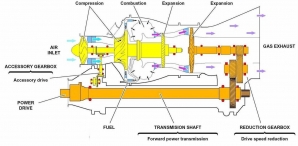Draft aviation policy draws flak
Monday, 30 November -0001 00:00

The draft civil aviation policy, released by the Ministry of Civil Aviation, on Monday has drawn criticism from experts who said it lacked substance.
“I can’t call this a draft policy. These are broad statements of intent. More depth will be required before policy is formalised,” said Centre for Asia Pacific Aviation (CAPA) Chief Executive Officer (South Asia) Kapil Kaul. “The draft civil aviation policy reads like a feel-good document, bereft of specifics on burning issues like aviation turbine fuel (ATF) taxes, maintenance repair and overhaul (MRO) taxes, airport charges and general aviation. Most of the points are ‘statements of intent’ and are ‘work in progress’ anyways,” said Amber Dubey, Partner and India Head of Aerospace and Defense at global consultancy KPMG.
He said going by the announcements, there would be no ‘open skies’ in India and, hence, bilateral traffic would continue to be constrained by the ability of Indian carriers to deploy equal capacity.
He said there was no mention of the Essential Air Services Fund (EASF) that was supposed to fund loss making routes, as proposed by the government’s own Naresh Chandra Committee in 2003.
“The long-pending Air Navigation Services (ANS) corporatisation is delayed further. There is no concrete policy measure to bring back the MRO revenue that India loses every day. The policy puts no pressure on the Directorate General of Civil Aviation (DGCA) to adhere to time limits for various clearances,” Mr. Dubey added.
As regards to listing of the Airports Authority of India (AAI) and Pawan Hans, there was no proposed timelines, the aviation expert said.
“Overall, the draft civil aviation policy is not very helpful. The dozens of policy suggestions that the industry gave to the Ministry have been ignored. Indian aviation will continue to struggle for relevance, policy support and profitability”, Mr. Dubey added.
However, Ankur Bhatia, Executive Director of Bird Group, welcomed the draft policy stating that at least a beginning has been made.
Our Packages



News & Events
Chennai International Airport completes its first phase of flood-proofing after deluge last year. Is it enough?
Monday, 14 November 2016 05:40
The employees of the Chennai International Airport can’t forget how water engulfed the tarmac on December…Nine flights diverted over Delhi smog
Monday, 07 November 2016 05:49
JAIPUR: Nine flights, including three chartered planes were delayed by 4-5 hours from landing in Delhi…From The Blog

